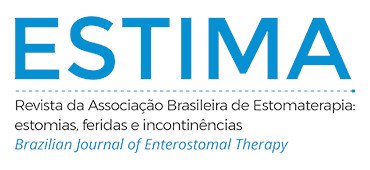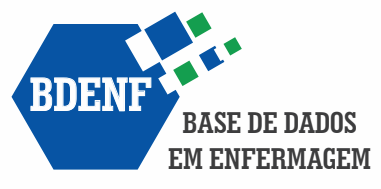Editorial Policies
- Mission
- Focus and Scope
- Types of Manuscripts
- Privacy Policy
- Peer Review Process
- Open Access Policy
- Archiving
- Frequency
- Copyright
- Ethical aspects
- Conflict of Interest
- Misconduct
- Submission Documents
- Others
Mission
Disseminate original and unpublished works of theoretical and/or practical relevance resulting from technical and scientific research in the field of nursing in stomatherapy contributing to the advancement of the specialty and scientific research at national and international level.
Focus and Scope
The Estima – Brazilian Journal of Enterostomal Therapy is the official publishing vehicle of the Associação Brasileira de Estomaterapia: Estomias, Feridas e Incontinências (SOBEST).
It is intended for the publication of articles prepared by professionals and academics in the health area.
With a focus on clinical practice, management, teaching, and professional development, articles are accepted so that can contribute to the expansion of knowledge and to the development of stomatherapy.
Its scope focuses on the specialty areas (stomies, wounds, fistulas, catheters and drains and incontinences) as well as the professional development of the specialist.
Its abbreviated title, ESTIMA - Braz. J. Enterostomal Ther., should be used in all bibliographic references.
And from 2018, the articles are published in two languages, Portuguese/English or Spanish/English, only in the online version and continuously, gathered in a single annual volume. Articles are made available as soon as approved by the editor-in-chief and finished by the editorial production.
Types of Manuscripts
Original articles, review articles, theoretical reflections, case studies, and experience reports are accepted for publication. In addition to the types of articles cited, the journal relies on the publication of editorials, produced by experts in a given area, by the invitation of the journal's editors or a letter to the editor.
The journal also publishes scientific texts published in national and international Preprints repositories, recognized by the academic community. The information that the text is a Preprint must come in a Cover Letter to the Editor, accompanied by the DOI (Digital Object Identifier) and the name of the server where it is deposited.
Editorial
Produced at the invitation of the Editor(s) of the Journal. Not more than two pages.
Original article
Manuscripts of original and unpublished research. Articles must contain a maximum of 60,000 characters with space, including figures, tables, references and attachments (when necessary and indispensable)
Review article
Literature review (Systematic, Integrative or Scoping Revew): a comprehensive and critical study of the literature on subjects of interest to the development of stomatherapy. Limited to 50,000 characters with spaces.
Theoretical Reflection
They are discursive formulations with a philosophical theoretical foundation on the global situation in which a certain investigative or potentially investigative issue is found. Its length is limited to 30 thousand characters with space.
Experience report
Clinical Case Report/Experience: A clinical case report or experience report should be limited to exceptional cases or series of cases, which are not a significant sample and are of great scientific interest. Its length is limited to 20,000 characters with spaces.
Letter to Editor
This section publishes letters addressed to the editors of the journal with the intention of clarifying, discussing and commenting on articles recently published by ESTIMA - Braz. J. Enterostomal Ther., expressing agreement or disagreement on the subject addressed, or reporting original research and significant scientific findings. Limited to 10,000 characters with spaces.
Privacy Policy
The names and addresses informed in this journal will be used exclusively for the services provided by this publishing and are not available for other purposes or to third parties.
Peer Review Process
The ESTIMA - Braz. J. Enterostomal Ther. adopts the double-blind peer review system, where the identity of the authors and evaluators are preserved. The submitted manuscripts
will be initially checked for compliance with the scope, compliance with editorial norms and content similarity (plagiarism) using the iThenticate system.
Manuscripts without or with a low percentage of similarity will be sent for evaluation. Manuscripts with high similarity content will be returned to the author for correction or rejected in definitive.
Manuscripts accepted for evaluation shall be forwarded to at least two ad hoc referees, who shall evaluate the manuscript for scientific content, forwarding the result to the editor or associate editor who, based on them, shall decide whether to publish, refuse or request corrections to the manuscript author. In cases where a new version is requested, upon receipt, the editor-in-chief or associate editor may decide for immediate acceptance or referral to a new evaluation round.
In cases where the author does not agree with the decision received, the appeal is allowed, arguing his reasons by sending an e-mail to the editor-in-chief who will reconsider the decision and can ratify it or not.
Publishers and evaluators use the right to decline acceptance for evaluation in the case of articles that are not within the scope of the journal, do not have clear and unpublished research or appropriate method to answer the research question.
The journal's editorial committee is formed by researchers from several teaching and research institutions, being, currently, 11% international. Among the Brazilians, about 31% are affiliated with institutions of the State of São Paulo and the others coming from other states.
Open Access Policy
This journal provides immediate open access to its content on the principle that making research freely available to the public supports a greater global exchange of knowledge.
Archiving
This journal uses the PKP PN system to create a distributed files between participating libraries and allows them to create permanent journal files for preservation and restoration.
Frequency
The Brazilian Journal of Enterostomal Therapy is a continuous publication (rolling pass) that published an annual volume with at least 40 manuscripts, that become available once it is approved and edited by the editorial production. In order to maintain punctuality, the closing of each volume will occur before December 31 of each year.
This type of publication aims to speed the dissemination of results contributing to the public knowledge base in the area.
Copyright
To maximize the dissemination and use of published material, ESTIMA - Braz. J. Enterostomal Ther. adopts the Creative Commons Attribution License CC-BY. Thus the copyright will belong to the authors, being allowed that others distribute, remix, adapt and create from their work, even for commercial purposes, provided that attributed the due credit.
Ethical aspects
The ESTIMA - Brazilian Journal of Enterostomal Therapy follows the Code of Conduct and Best Practice Guidelines for Journal Editors of the Committee on Publication Ethics (COPE) (http://publicationethics.org/), as well as the guidelines of the International Committee of Medical Journal Editors (http://www.icmje.org) having signed the San Francisco Declaration on Research Assessment (DORA) (https://sfdora.org).
It also emphasizes that it supports the Clinical Trials policy of the World Health Organization (WHO) and Good Clinical Practice. As well as the Declaration of Helsinki (1964, reformulated in 1975, 1983, 1989, 1996, 2000, 2008 and 2013), in addition to compliance with research legislation in Brazil.
For research involving humans, authors should send a copy of the approval issued by an Ethics Committee recognized by the National Commission for Research Ethics (Comissão Nacional de Ética em Pesquisa - CONEP), as regulated by Resolutions n. 466/2012 and n. 510/2016 of the National Health Council (Conselho Nacional de Saúde - CNS) or equivalent body, in the country of origin of the research, even if it is a study/report or series of cases and an informed consent form must be provided.
In the research carried out in Brazil, the process/project number should be included in the Methods Section of the manuscript.
All published articles are the sole responsibility of the authors, not necessarily reflecting the opinion of the Editors and the members of the Editorial Board.
When pharmaceutical products are used, they should be mentioned generically in the body of the text. If it is necessary to cite the mark, it should be done at the end of the text, as an observation.
Studies of the clinical trial type should include the number of the Clinical Trials Approval Register (http://www.ensaiosclinicos.gov.br), whose supporting document should be sent to the journal. In cases involving research involving animals, the approval of the Committee on Ethics in the Use of Animals should also be forwarded.
Considering that ESTIMA, Brazilian Journal of Enterostomal Therapy supports the policies for registration of clinical trials of the World Health Organization (WHO) and the International Committee of Medical Journal Editors (ICMJE) and recognizing the importance of these initiatives for the registration and international dissemination of information on clinical studies in open access, only clinical research articles that have received an identification number in one of the Clinical Trial Registries will be accepted for publication. These should be validated by the criteria established by WHO and ICMJE, whose addresses are available on the ICMJE website (http://www.icmje.org). The identification number should be recorded at the end of the abstract.
Conflict of Interest
Authors are responsible for recognizing and disclosing conflicts of interest that may influence their work so that the Editorial Team can decide on the manuscript. Authors should report financial support and other financial or personal connections in relation to their work, if any. Financial or other relationships that could lead to conflicts of interest must be informed by the authors during manuscript submission.
The corresponding author, when submitting the manuscript, must electronically sign: a) the commitment that the manuscript is not being submitted to another journal; b) the responsibility of all author(s) regarding authorship and originality; c) information on conflicts of interest; d) information on receiving funding from research funding agencies.
Misconduct
The Estima - Brazilian Journal of Enterostomal Therapy uses the Digital Object Identifier (DOI®) and is committed to the principles of ethics and scientific integrity and strongly condemns plagiarism and self-plagiarism using the iThenticate similarity detection system through an agreement signed by the Brazilian Association of Scientific Editors (Associação Brasileira de Editores Científicos – ABEC Brasil).
If the similarity level is greater than 21%, the manuscript will be rejected and both authors and/or their institutions will be notified. If plagiarism or fraud is detected in the peer review process, in the evaluation stages by reviewers or by the editors, these measures will also be applied.
When any type of misconduct is identified after the article is published, Estima - Brazilian Journal of Enterestomal Therapy will publish a retraction in the same edition as the manuscript has been disclosed.
Submission Documents
□ Manuscript without identification of authors
□ Registration of the Ethics Committee/Clinical Trials Protocol
□ Proof of payment of submission fee or active SOBEST Member.

























